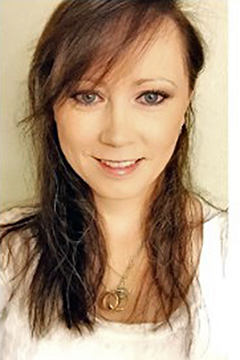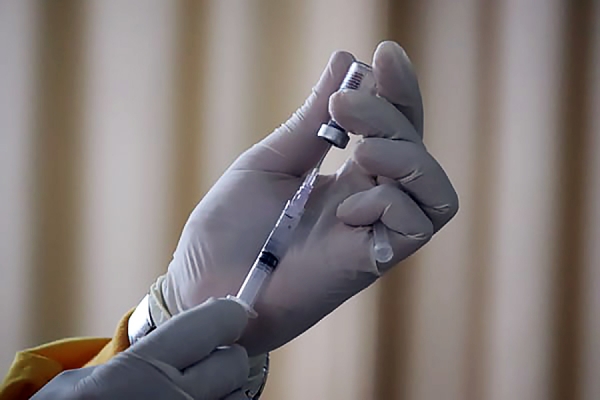The COVID-19 pandemic has highlighted a lack of knowledge about vaccines, and a team of UWindsor researchers has a plan to remedy it.
 Kinesiology professor Paula van Wyk (pictured at left) is leading a research project that will use a variety of tools to educate adults about vaccines and boosters for a range of illnesses. Together with fellow kinesiology professor Patti Weir, nursing professor Debbie Kane, and computer science professor Ziad Kobti, van Wyk will work with community agencies and local pharmacies to combat the vaccine hesitancy among adults that exists because of misleading information being promoted through social media.
Kinesiology professor Paula van Wyk (pictured at left) is leading a research project that will use a variety of tools to educate adults about vaccines and boosters for a range of illnesses. Together with fellow kinesiology professor Patti Weir, nursing professor Debbie Kane, and computer science professor Ziad Kobti, van Wyk will work with community agencies and local pharmacies to combat the vaccine hesitancy among adults that exists because of misleading information being promoted through social media.
“The evidence is clear that a large percentage of the adult population is not fully vaccinated for conditions and diseases that have been around for decades,” said Dr. van Wyk, referring to diseases such as pertussis, tetanus, influenza, pneumonia, and shingles. “This has been exposed by COVID-19, making these individuals a risk to themselves and the general population.”
The project is being funded through a $50,000 grant from the Natural Sciences and Engineering Research Council of Canada in conjunction with the Social Sciences and Humanities Research Council of Canada and the Canadian Institutes of Health Research. The funding comes from a pot of money set aside to encourage vaccine confidence.
Van Wyk’s grant is one of four awarded to researchers at UWindsor, for total funding of $200,000.
The centrepiece of the project is an interactive website with a quiz that tests participants’ knowledge about vaccines. Education about different vaccines and boosters for adults is provided, in addition to when and where you can receive your shots. Participants taking the quiz can sign up to receive daily emails with vaccine facts. The material will also be distributed through social media and mailed or handled out in printed form.
For wide reach throughout Windsor and Essex County, including immigrants and migrant workers, the website and printed material will be available in Spanish, Arabic, and Mandarin, as well as English and French.
The team includes two doctoral students from computer science and one undergraduate student from kinesiology who are helping to build the website and conduct an initial analysis based on early quiz results and by scraping data from social media. They will help develop educational materials based on what that initial analysis reveals.
The team has partnered with the WE-Spark Health Institute, a partnership among the university, Windsor Regional Hospital, Hotel-Dieu Grace Healthcare, and St. Clair College that supports local health research. Other partners include the Windsor-Essex County Health Unit, the Windsor-Essex Compassionate Care Committee, seniors’ centre Life After 50, the Windsor Public Library, and local pharmacies.
Van Wyk said there is both misinformation unwittingly being spread about COVID and vaccines in general, and disinformation spread intentionally to undermine public health. While both have existed in the past, incorrect information spreads more easily today because of social media, she said.
“There is a lot of information available and it can be overwhelming. Not everyone has the critical thinking skills to weigh the validity of the information coming at them,” said van Wyk. Bad information gets repeated and misconstrued as fact.
“We want to make sure we are providing resources to educate people, particularly adults, about vaccine benefits, booster requirements, and disease risks,” van Wyk said. “What we’re saying is, ‘Here’s the information you may not know’.”
The goal is to help adults make evidence-based decisions about vaccination, translate their knowledge into vaccine compliance, and move Windsor and Essex County toward the national coverage goal of vaccine uptake.
The project’s funding will cover costs for one year and will create a product that can be used well into the future.
—Sarah Sacheli

